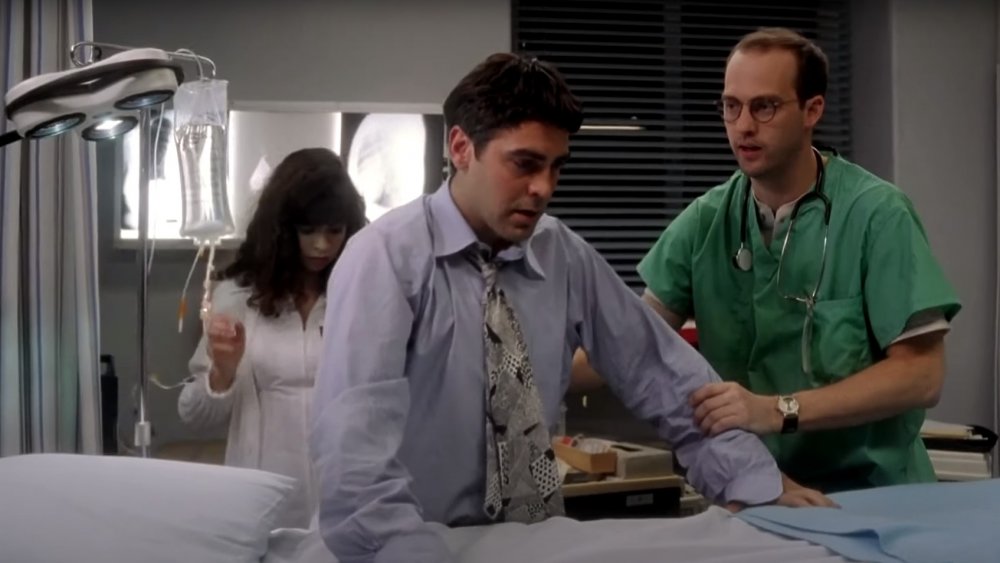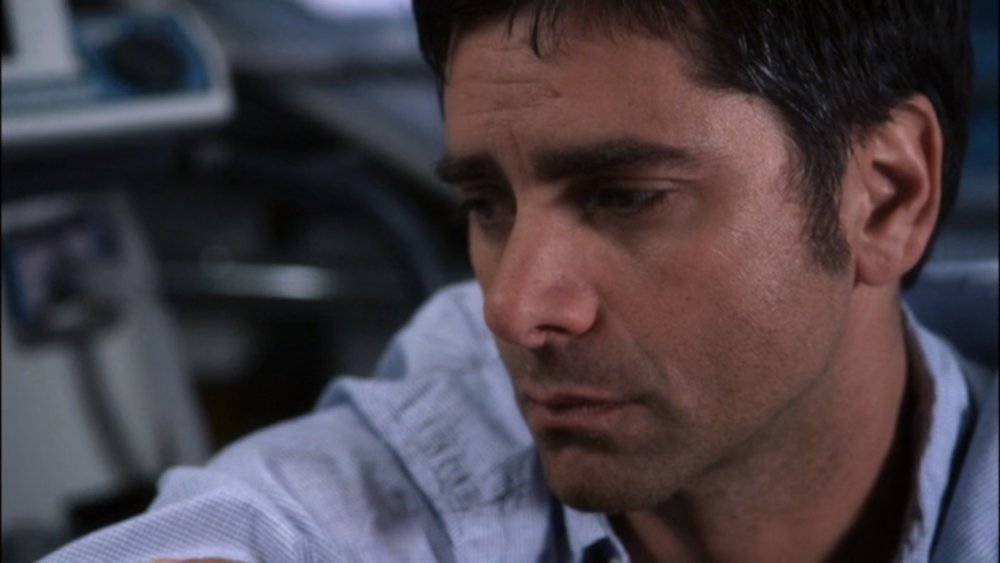The Real Reason ER Was Canceled
Here's a fun fact: Before he got his start as America's most-prolific negative Yelp reviewer for fictional theme parks, novelist, screenwriter, and director Michael Crichton attended Harvard Medical School. According to his own recollections, the reason stemmed in part from the lackluster grades that he received from his English professors. At one point, Crichton claimed to have colluded with a friendly teacher to confirm that he was getting a raw deal by turning in an essay written by George Orwell, for which he received a B-. Guess he really showed that pencil pusher.
Crichton's time as a med student informed one of his most successful Hollywood ventures: ER, a medical procedural every bit as ubiquitous in the 1990s as midriff tops and frosted tips. Originally written as a feature film, the show's two hour pilot premiered in 1994, heralding a new age of televised dramas in which patients were firmly reminded not to die on somebody's watch and 20 cc's of stuff were always needed STAT. For more than a decade, ER had all the hallmarks of an un-killable network television juggernaut. The series was responsible not only for the rise of George Clooney, but also, more pressingly, George Clooney Batman.
Then, in 2009, the hammer fell. After 15 years of globetrotting medicinal high drama from an ensemble cast, this staple of American television was finally toast. As with any time that a show's plug gets pulled, the reasons for ER's end vary from one interview to another, but the undeniable truth at the core of the cancellation was a simple one: The ratings just weren't what they used to be.
ER: Making the Sta-most of a bad situation
ER started in the mid-'90s, a point in time when network television was still, compared to today, a thing. Its numbers started strong, and stayed impressive for years, never abandoning its ranking in the top ten most-viewed shows for its first ten seasons.
But nothing lasts forever. As the 21st century progressed, so did the entertainment industry. Shows like Grey's Anatomy and Law & Order: SVU had seemingly discovered the ancient crystal which granted ER its immortality, robbing it of its power. Season 11 saw the beginning of the program's precipitous ratings decline, dropping from 8th to 16th place, then 30th the next year, and 40th the year after that.
By season 14, viewership had dropped to a third of what it was in the show's heyday. According to ABC's ratings reports from the time, ER was the 54th most-viewed show on television, falling behind classics like Pushing Daisies and that Bionic Woman reboot that everybody forgot about. The audience just wasn't there, and NBC found itself learning the same lesson that most of George Clooney's ex-girlfriends have picked up the hard way: You can't replace George Clooney with John Stamos and expect that everything will be okay.
Even after 15 years and more than 300 episodes, reactions to the show's cancellation were mixed. In an interview with The New York Times on the subject of the finale, longtime executive producer John Wells seemed to be at peace with the decision. "It's very odd to say, but it really was time to end. It's ending at a time when we're all still very proud of it," Wells said. John Stamos, on the other hand, stated that "I think they're canceling it prematurely. I still have a lot of energy for the show. I think you could keep doing it as a spinoff." We can all be thankful we were spared that particular program. Sometimes, it's best to let an old property die in peace.

